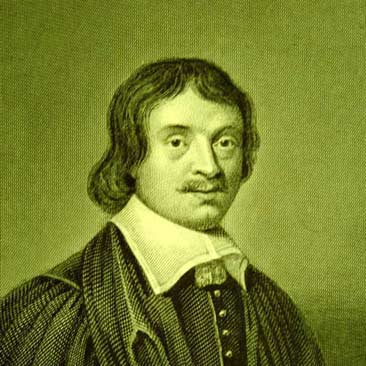
“The Principle Things of Religion” – Selections from Theological Lectures
The following selections come from Archbishop Robert Leighton’s ‘Theological Lectures,’ which may be found HERE.
Mankind “looks for a happy life in the region of death.” (Augustine)
“To know God is wisdom, and to worship him, justice.” (Lactantius)
“But the principle things of religion, as I have frequently observed, are just conceptions of God.”
Tatian declared that no argument more effectually determined him to believe the Scriptures and embrace the Christian faith, than “the consistent intelligible account they gave of the creation of the universe.”
“Impiety is the severest distemper of the soul.” (Trismegistus)
“God took some of the dust of the earth, And out of it formed man; From these words I understood, that man was at once nothing, and yet something very grand.” (Gregory of Nyssa)
“They who take away providence, though they acknowledge God in words, in fact deny him.” (Cicero)
“One of the ancients most justly called man ‘God’s favorite creature.’ And he spoke much to the purpose, who said, ‘God is neither a lover of horses nor of birds, but of mankind.’”
“Let us grant that God can do some things which we cannot understand” (Augustine)
“If we consider the lives of men, we shall be apt to imagine, that the generality of mankind who live in the world under the name of Christians, think it sufficient for them to be called by this name, and dream of nothing further. The common sort of mankind hear with pleasure and delight of free remission of sins, imputed righteousness, of the dignity of the sons of God, and the eternal inheritance annexed to that dignity ; but when they are told that repentance, a new heart, and a new life, contempt of the world and the pleasures of the flesh, fasting and prayer, are absolutely necessary for a Christian – these are hard sayings; who can bear them? Though at the same time it must be said, that they who do not regard these necessary duties will have no share in the reward annexed to them.”
“If we consider…that God was the author of the human kind, none of Adam’s race can be called ignoble. But if on the other hand, we regard our woeful fall, which was the consequence of sin, we are all degenerate.”
“The way to vice is not only a descent, but a downright precipice.” (Seneca the Younger)
“It is not at all to be doubted, but the end proposed by philosophy was to renew and to reform mankind, and to reduce the course of their lives to a conformity with the precepts of wisdom and virtue. Whence the common definition given of philosophy is, that it is the rule of life, and the art or science of living uprightly. To this purpose Seneca says, ‘Philosophy is the law of living honestly and uprightly.’ True religion, to be sure, has the same tendency, but it promotes its end with much greater force and better success; because its principles are much more exalted, its precepts and instructions are of greater purity, and it is besides attended with a divine power…”
“He that is born of God is endued with a greatness of soul, that makes him easily despise and consider as nothing those things which he prized at a very high rate before. He considers heaven as his country, even while he lives as a stranger on this earth. He aspires at the highest objects, and, ‘flying up towards heaven, with soaring wings, looks down with contempt upon the earth.'”
“St. Ambrose tells us [that this answer] was given by a young convert to his mistress, with whom he had formerly lived in great familiarity; ‘Though you may be the same, I am not the same I was before.'”
“Temperance is always at leisure, luxury always in a hurry.” (Robert Leighton)
“Temperance is always at leisure, luxury always in a hurry. The latter weakens the body and pollutes the soul, the former is the sanctity, purity, and sound state of both.”
“Lactantius elegantly sets forth the wonderful power of religion in this respect. ‘Give me,’ says he, ‘a man that is passionate, a slanderer, one that is headstrong and unmanageable; with a very few of the words of God I will make him as quiet as a lamb. Give me a covetous, avaricious, or close-handed person; I will presently make him liberal, and oblige him to give away his money in large quantities with his own hands. Give me one that is afraid of pain or of death; he shall, in a very little time, despise crosses, flames, and even Phalaris’s bull. Show me a lustful person, an adulterer, a complete debauchee; you shall presently see him sober, chaste, and temperate.'”
“I should therefore choose to give this brief and clear definition of theology, that it is a divine doctrine, directing man to real felicity as his chief end, and conducting him to it by the way of true religion. I call it a doctrine, because it is not considered here as a habit in the mind, but as a summary of celestial truth. I call it a divine doctrine, for all the reasons already mentioned, because for instance, it is from God; he is the subject of it, and it all terminates in him at last. I call it a doctrine directing man, for I confine my notion of it to that doctrine only, which was sent down from heaven for that purpose.”
“To be capable of a law is the mark and ornament of an intelligent, rational soul.” (Robert Leighton)
“To be capable of a law is the mark and ornament of an intelligent, rational soul, and that which distinguishes it from the brutes: it evidently supposes a resemblance to God, and an intercourse with heaven. And to live actually under the direction of religion and the law is the great honor and ornament of human life, and what distinguishes it from the irregular conduct of the brute creation; for as the poet expresses it, ‘One beast devours another, fishes prey upon fishes, and birds upon birds, because they are subject to no law; but mankind live under a just law, which makes their condition far preferable.’ The brute creatures devour one another without blame, because they have no law; but as Juvenal observes, ‘Men alone of all earthly creatures, as they derive their reason from the highest heaven, are venerable for their understanding, which renders them capable of inquiring into divine things, and qualifies them for learning arts, and reducing them to practice.'”
“And the reasonings of the author of the Epistle to the Hebrews concerning the oath of God may also be applied for this case; As he had no greater to swear by, says the apostle, he sware by himself. In like manner, as he had no greater or better end to propose, he proposed himself. He hath made all things for himself, says the author of the Book of Proverbs, even the wicked for the day of evil. And the apostle Paul in his Epistle to the Romans, gives us a lively description of that incomparable circle, the most complete of all figures; Of him, and through him, and to him, are all things, to whom be glory for ever. Amen.”
“Let us therefore look upon God as our Father, and venture to trust him with our all. Let us ask and beg of him what we want, and look for supplies from no other quarter.” (Robert Leighton)
“For it is evident, that man, in this life, becomes so much the more perfect and happy, in proportion as he has his mind and affections more thoroughly conformed to the pattern of that most blessed and perfect Life. And this is indeed the great ambition of a true Christian; this is his study, which he ceases not to pursue with ardor day and night: nor does he let so much as one day pass without copying some lines of that perfect pattern. And the more he advances in purity of mind, the greater progress he makes in the knowledge and contemplation of divine things.”
“All true and lively faith begets love; and thus that heavenly light is the vehicle of heat. And as, by this means, true faith has a tendency to the practice of obedience, so all true obedience depends upon faith and flows from it. But it also proceeds from love, because faith first produces love, and then works by it. All knowledge of mysteries is vain and of no value, unless it have an influence upon the affections, and thereby upon the whole conduct of life. The luminaries of heaven are placed on high; but they are so placed, that they may shine and perform their periods, for the benefit of this earth.”
“Study to acquire such a philosophy as is not barren and babbling, but solid and true.” (Robert Leighton)
“Study to acquire such a philosophy as is not barren and babbling, but solid and true; not such a one as floats upon the surface of endless verbal controversies, but one that enters into the nature of things; for he spoke good sense, who said, ‘The philosophy of the Greeks was a mere jargon and noise of words.'”

Robert Leighton (1611-1684) was a Scottish scholar, Principal of the University of Edinburgh, and Archbishop of Glasgow in the Church of Scotland. His writings were held in high regard by following generations of evangelicals.

In place of comments, I would love to hear from you personally. Please reach out to me via the Contact Page to share your thoughts and perspectives on this post!



